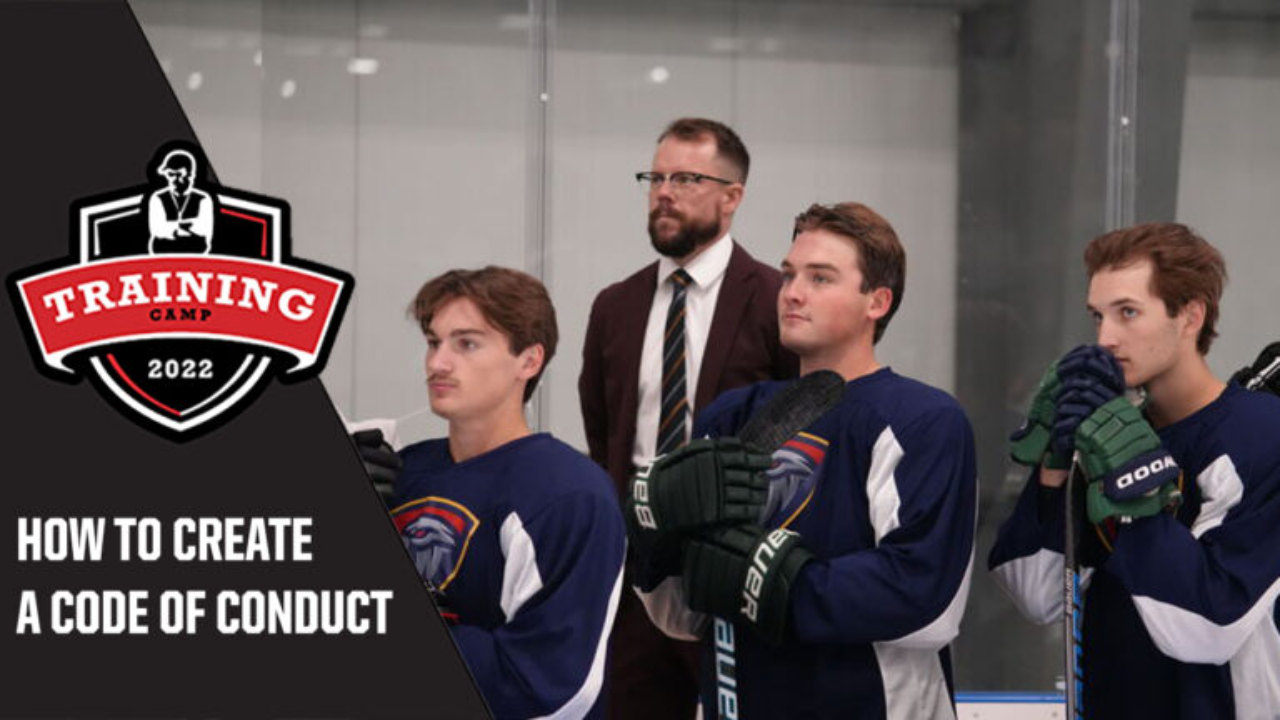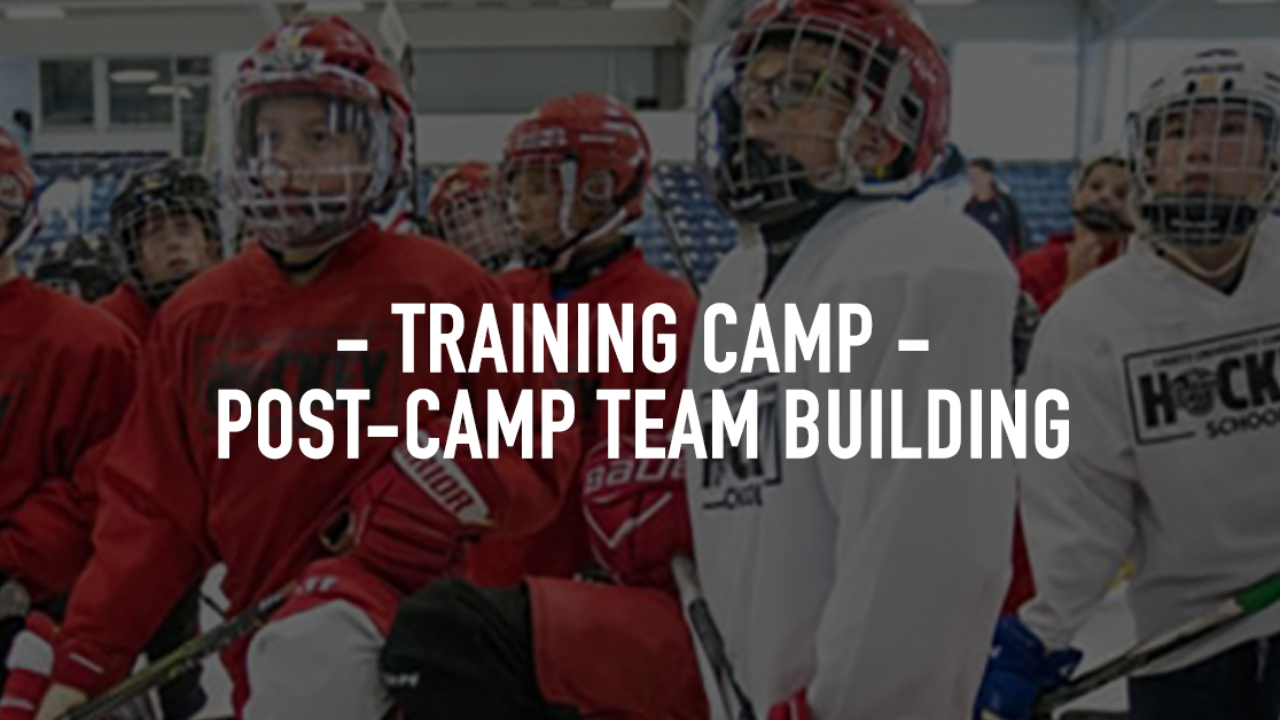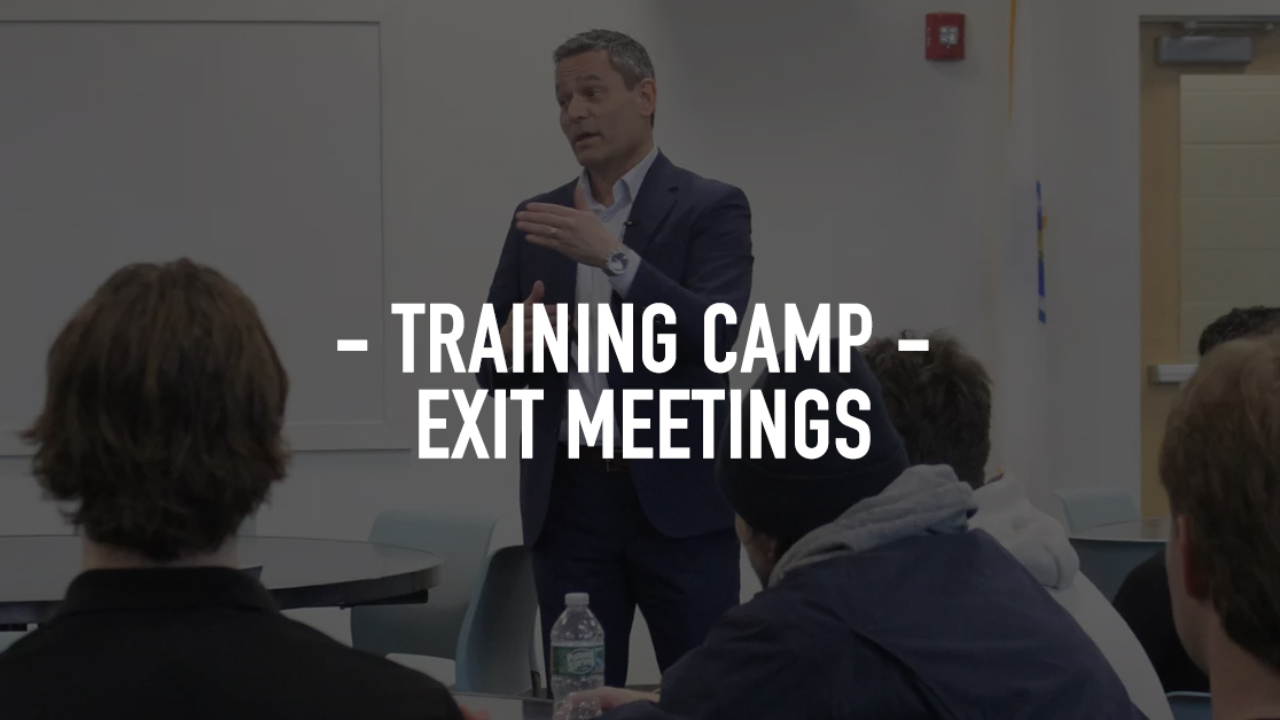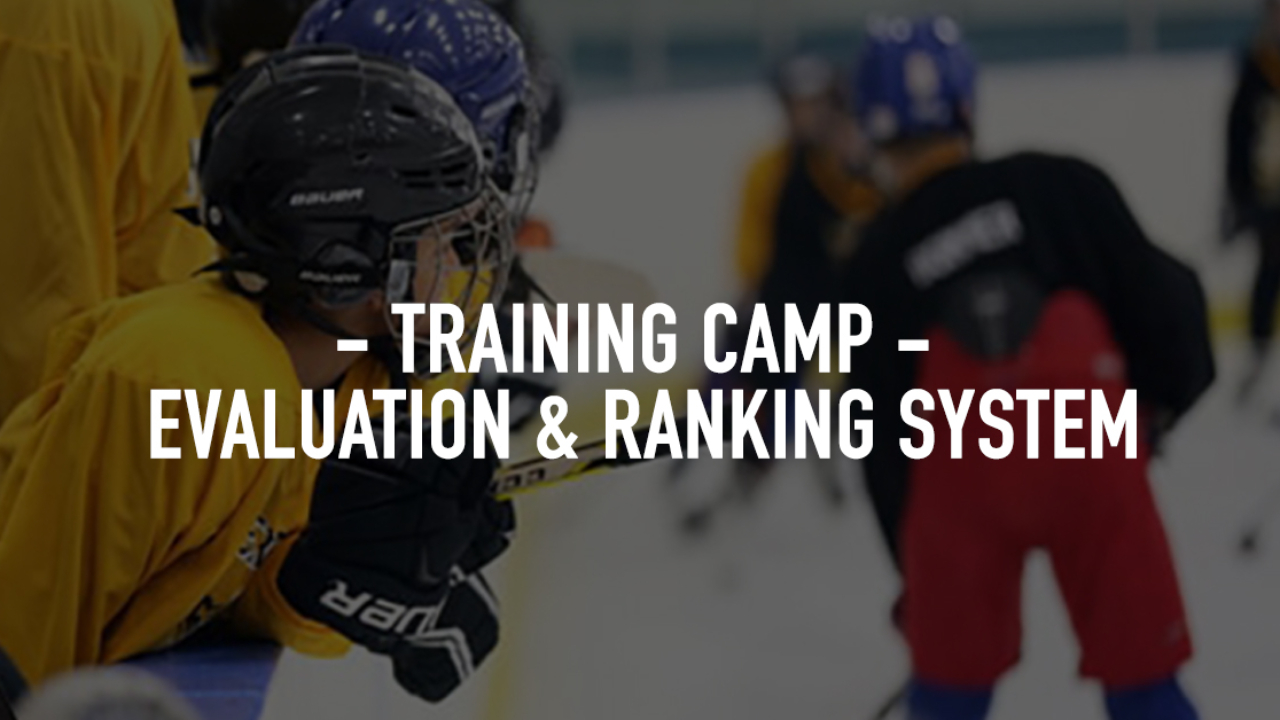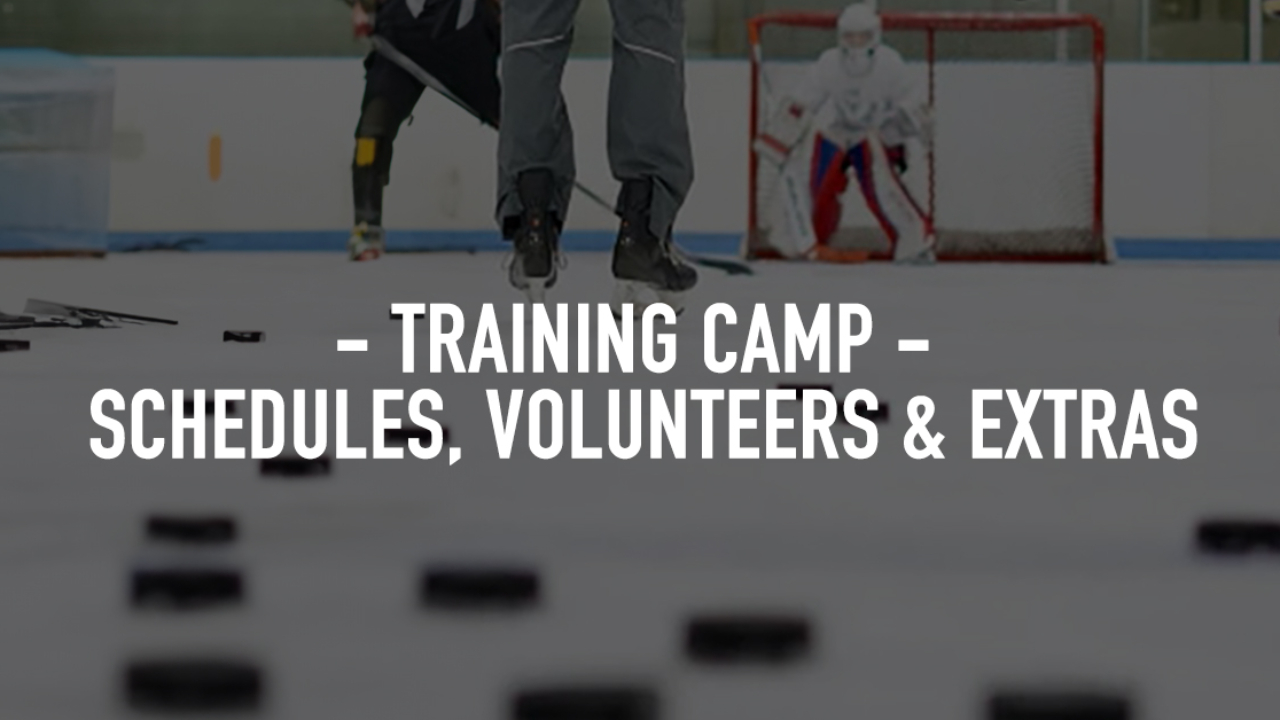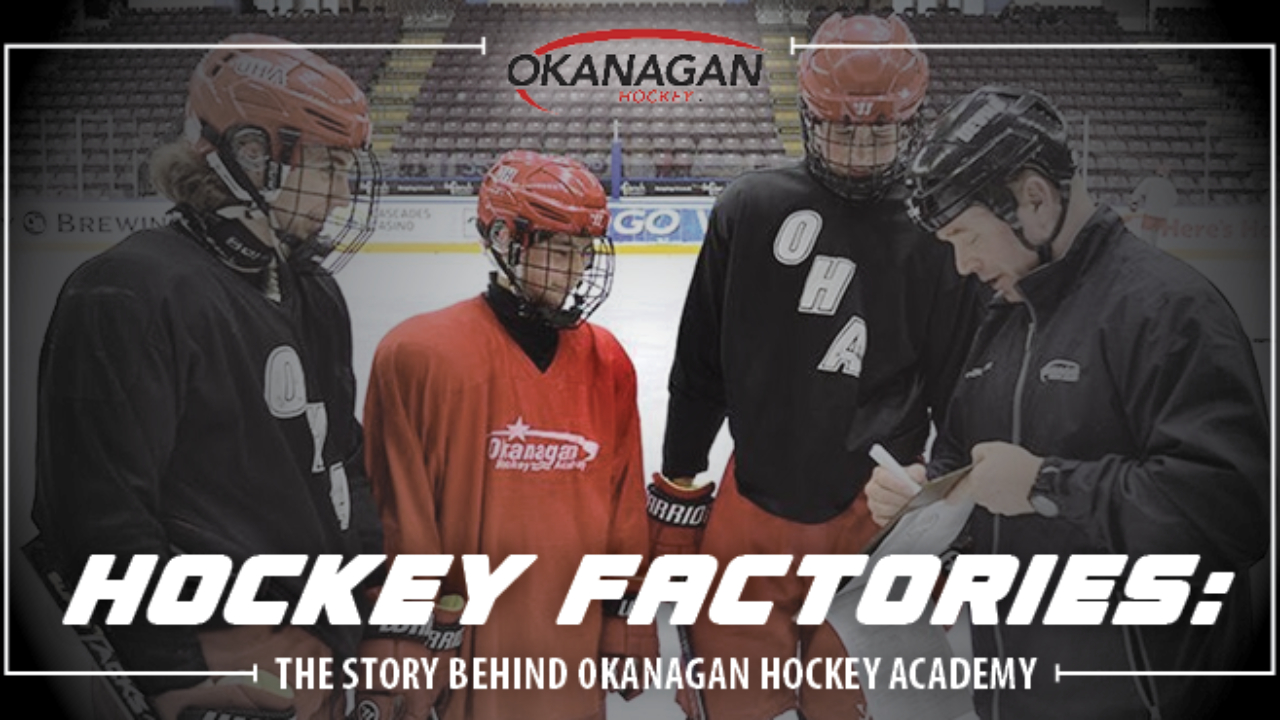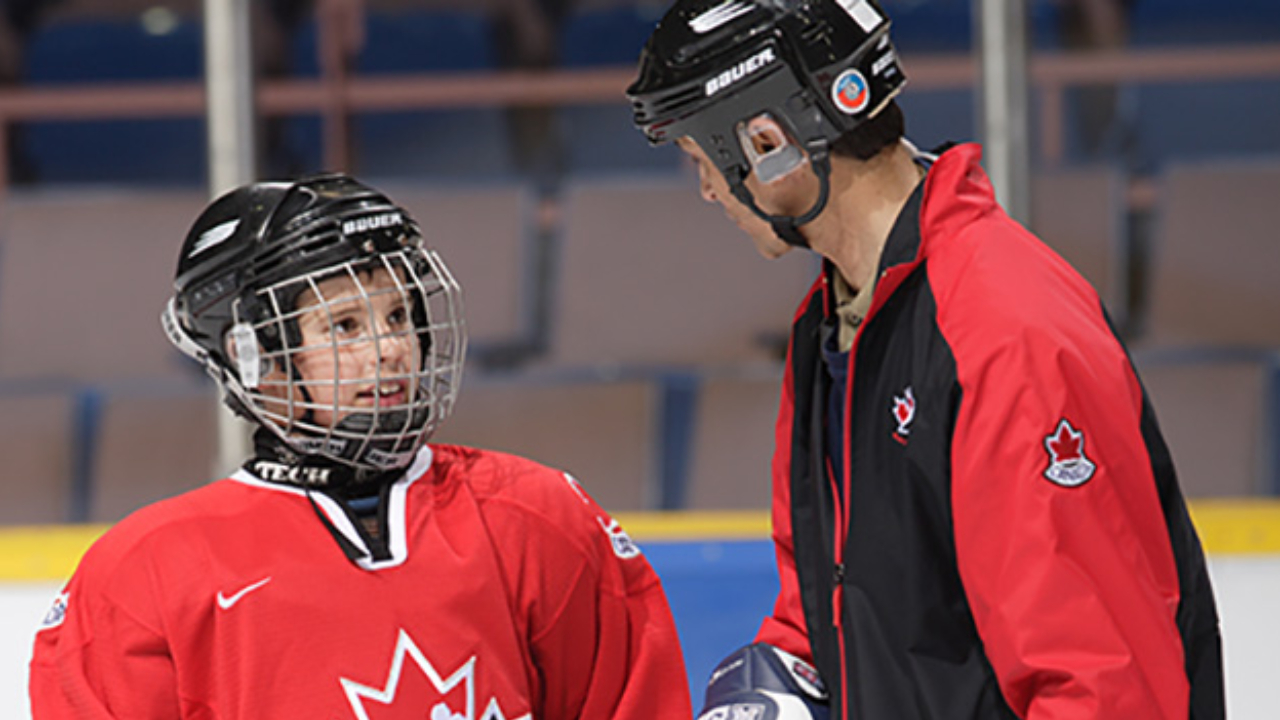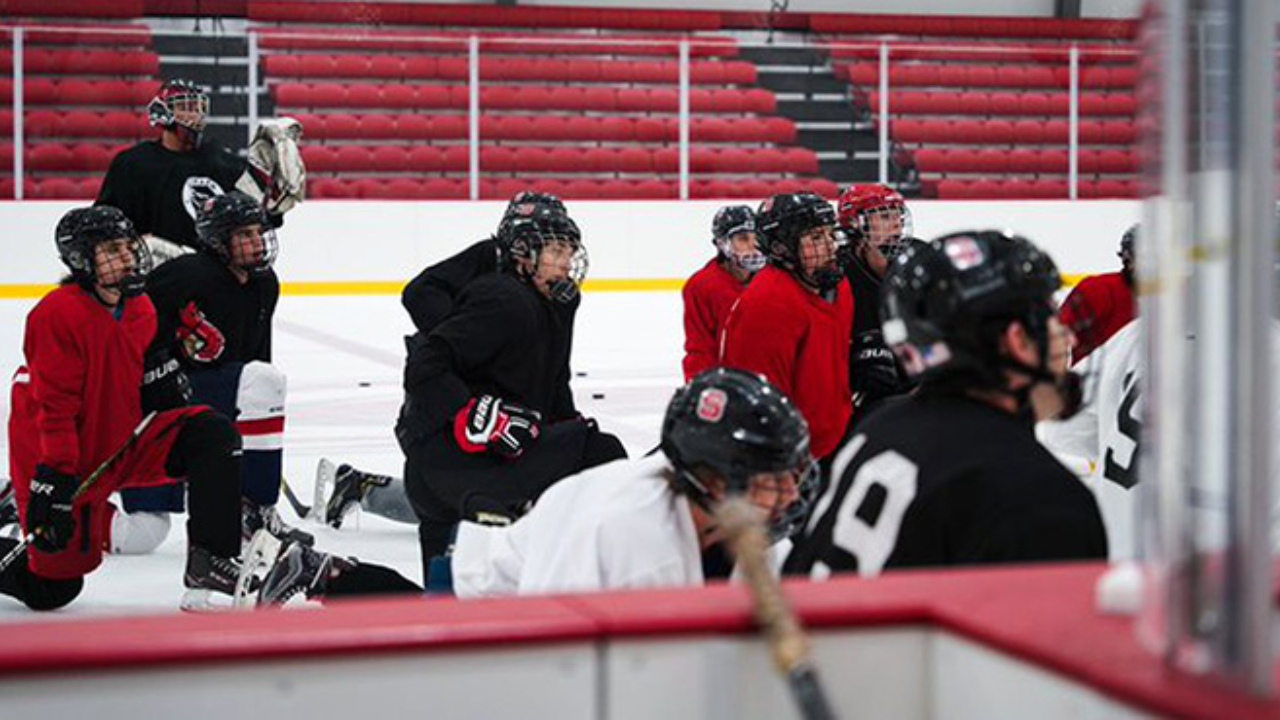
After all the prep, players have finally hit the ice.
I put everything I had into landing the job as the General Manager and Head Coach of the Manitoba Junior Hockey League’s 13th franchise: the Niverville Nighthawks. I believe the MJHL is a league on the rise, so I built my application with anticipation of an organization that would do things differently than they’ve done before. Our board of directors must have agreed because I was encouraged to be progressive and follow my instincts when it came to building a roster from scratch, a staff from scratch, and a laundry room from scratch. What I believed then was that we would do things differently on purpose.
Here, on the eve of the team’s first training camp, I know now that our pursuit of being different is almost a series of happy accidents. We’re different because we don’t know any better. No one in our organization has been in their position before. Everyone has expertise and intelligence, and because of that we almost fall into situations that have mostly turned into positives.
Staff (Everyone is New)
It would have been easy to hire a bunch of people who have experience in their jobs before, but people who have started a junior A hockey franchise from scratch are few and far between. I’ve talked to people I trust throughout the country who have experience with expansion, but there’s no way to predict the unique challenges of the market. Most people working in junior A hockey are either part-time or volunteers.
Before I had any staff beyond myself and my Assistant GM / Director of Scouting, I believed I needed to perfectly define what every position would look like. An assistant coach, a trainer, a strength coach, a goalie coach – simple stuff, right? What I was told by people I trust is that it would sort itself out, and my brain couldn’t handle that.
But that’s exactly what happened. Niverville is a small town, and slowly but surely people started coming out of the woodwork who wanted to be part of the team. This was a challenge to root through, because a lot (a LOT) of people wanted to be involved with the team. Just because you want to be involved doesn’t mean you get to. People need to fill spots and solve problems. And that’s what happened. What I originally envisioned as a staff of five or six turned into:
- GM / HC
- Assistant GM / Director of Scouting
- Assistant Coach 1
- Assistant Coach 2
- Head Strength & Conditioning Coach
- Head Physiotherapist
- Athletic Trainer / Sport Science Coach
- Goalie Coach
- Skills Coach
- Dressing Room Manager
- Yoga Instructor
- Photographer / Special Projects
And I stayed on budget! What started as a mystery to me is now our greatest strength: our people. We had an incredible culture meeting in which I went through seven keys to success on and off the ice, and I was blown away by the interaction and contributions from everybody.
Logistics (We Had Nothing)
Imagine telling a board of directors who have worked on bringing junior hockey to their small town on the prairies for years that one of your favourite things to do at the rink is laundry. No, I don’t do laundry for fun, but when you’re the only person who works for the team and there are spring camps to operate and tidy up – yeah, there’s a lot of laundry to do, and I’m the only one to do it.
But man, when the jerseys are fresh and hanging up and you can pack up for the day knowing everything will be waiting for you tomorrow – that’s a good feeling. The logistical gymnastics of hockey is crucial because when it’s off it throws off the entire operation. And these are the details not considered by people who aren’t immersed in the game. It’s no one’s faulty, but it did prove to be a frequent conversation in the last summer before the first training camp. There’s a lot of explaining – ever tried to explain to a civilian what a laundry loop is? Before our first spring camp began I went to sit down in our makeshift coaches room only to realize we had nowhere to sit. No chairs! Nothing.
And this is one of those happy accidents – one call to a board member who happens to own a hardware store in town and we had a place to sit down. These are the kinds of people we’re surrounded with. This person owns a successful business in town and he dropped everything in the middle of a busy day to hand deliver chairs to the new coach and his assistants. I’ll never stop telling that story, because it’s those tiny logistical hurdles than make or break everything.
The community is truly on board and excited for this team. It’s fun – even when getting dumped in water!
Players (They’re Finally Here)
One of the biggest keys to working with our board of directors and our shareholders is expressing my gratitude for everything they’ve done. It’s impossible to write enough to satisfy that gratitude, and they don’t need it, but it’s still there.
Our group is the ultimate example of go big or go home. The opening night social they’re planning should involve a little over half the town. The game day operations, tickets, security, sponsorships, billets, engagement – they’ve put their professional and personal lives on hold (although some of their contributions have turned into family affairs) for this team and this community.
With that in mind, here on the eve of training camp, I sent a letter to our board of directors thanking them once again and asked them to push pause on their extra projects in order to come to the rink and spend some time watching the first practices and scrimmages. There’s two parts to this.
- Without the players, all of their dedication is for nothing, and I know they know that, but it’s important they remind themselves why they’re working so hard. It gets real when you see a real human being wearing the logo you designed or living in your neighbours house or competing for your town. The pride and positive impact these players can provide our community is immeasurable, and I want the leaders of our town to see the results of their dedication.
- I want the players to understand the value of that dedication. We don’t have everything we need yet, and that’s ok. We worry about what we do have instead of what we don’t, and what we do have is an eager army of contributors behind the scenes doing everything they can to make Niverville a premier junior A destination in Canada.
The hockey is the fun part. The stronger our process is, the sooner we’ll see positive results. But that doesn’t mean we’re going to be perfect. In fact, I’m reminded of a message Aaron Wilbur (kinda the boss around here, maybe you’ve heard of him) used to repeat in the good old days when the Glass & Out Podcast was just starting. We had some awkward conversations in those days, but we pushed ourselves to get better and we didn’t let perfect get in the way of good.
The lesson applies to the new team here in town. Perfect is finite, but good can evolve. If you reach perfection, are you done? Or can we allow ourselves some breathing room to improve. I believe what’s good enough in a week will be far better than what perfect is today.
It’s been a year of writing about this, let’s get this started already.


